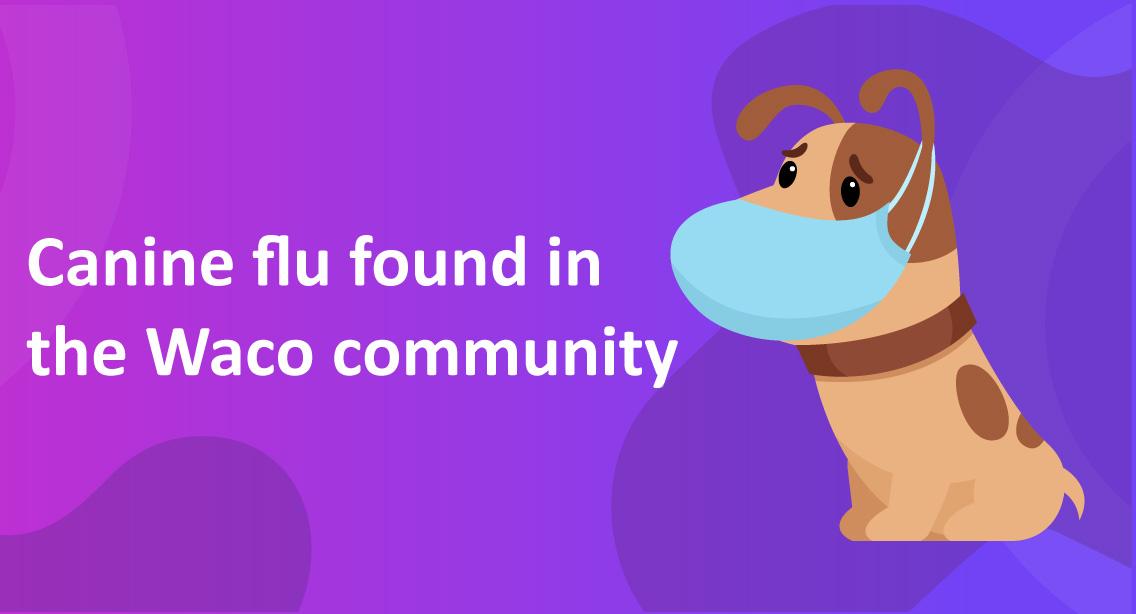Canine Flu Found in the Waco Community
Canine flu has emerged in the Waco city of Texas as at least three coughing dogs tested positive for the contagious disease.
According to a local clinic, a major upper respiratory disease is spreading through Waco and surrounding communities. In the last two weeks, veterinarians in the area have seen a significant increase in dogs experiencing upper respiratory symptoms, like coughing, sneezing, lethargy, poor appetite, and increased respiratory rate.
It is reported that these dogs were recently in highly social environments three to five days before these symptoms appeared. Canine influenza is never found in the Waco area, so these were assumed to be kennel cough cases.
Clinics have confirmed that at least three coughing dogs in the community have tested positive for the H3N2 strain of Canine Influenza. But, due to the high cost of testing for canine influenza, most owners who have come with symptomatic dogs have decided not to do testing. They have instead asked clinics to treat their dog, assuming it has kennel cough.
Although confirmed canine influenza test results have not been obtained for all dogs examined, clinics believe all these dogs are infected with canine influenza. An influenza A virus causes canine influenza, also known as dog flu.
In the US, two dog flu strains have been identified. The H3N8 was first discovered in the dog population in 2004, and a "newer" H3N2 was discovered in 2015. Although clinics claim it does not infect humans, canine influenza is contagious to other dogs and can occur at any time of year.
Most dogs have mild symptoms and recover in one to three weeks. Yet some cases can progress to worsening symptoms or even life-threatening pneumonia. Exposure to the virus occurs through contact with respiratory secretions from other dogs in doggy daycare, boarding, grooming, or other social activities.
Clinics recommend limiting activities that expose dogs to other people as a preventative measure. If a dog has recently been treated for a cough or diagnosed with canine influenza, it is recommended that they not interact or socialize with any other dogs for at least one month after exhibiting symptoms.
The H3N2 strain found in Waco is transmissible for up to 28 days after infection. It is appropriate to cancel your boarding reservation if your dog has displayed these symptoms and is scheduled to board at any clinics or dog boarding facilities during the upcoming holidays. If your dog exhibits these symptoms and you do not cancel your reservation, you endanger the lives of other people's four-legged family members.
A severe outbreak could also force them and other facilities to close, affecting their employees' livelihoods and the availability of holiday boarding.
A vaccine is available for both the H3N8 and H3N2 influenza strains. Dog owners should consider vaccinating their dogs if they intend to take them to high-social situations.
The vaccine consists of an initial vaccination followed by a three-week booster. A dog will not develop full protective immunity from the vaccine until seven to ten days after receiving the booster. Infection can still occur after vaccination, but symptoms in vaccinated dogs are much milder.
Clinics say the situation is fluid, and recommendations may change in the coming days and weeks.







